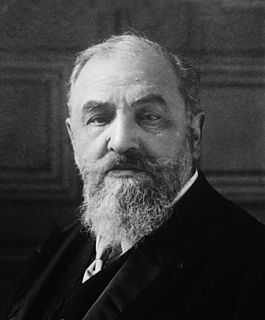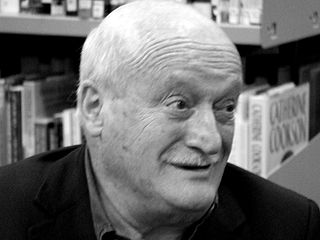A Quote by Charles Darwin
As man advances in civilization, and small tribes are united into larger communities, the simplest reason would tell each individual that he ought to extend his social instincts and sympathies to all members of the same nation, though personally unknown to him. This point being once reached, there is only an artificial barrier to prevent his sympathies extending to the men of all nations and races.
Quote Topics
Advances
All Nations
Artificial
Barrier
Being
Civilization
Communities
Each
Each Individual
Extend
Extending
Him
His
Individual
Instincts
Larger
Man
Members
Men
Nation
Nations
Once
Only
Ought
Personally
Point
Prevent
Races
Reached
Reason
Same
Simplest
Small
Social
Tell
Though
Tribes
United
Unknown
Would
Related Quotes
Civilization enables us constantly to profit from knowledge which we individually do not possess and because each individual's use of his particular knowledge may serve to assist others unknown to him in achieving their ends that men as members of civilized society can pursue their individual ends so much more successfully than they could alone.
Ought to have a universal compulsory force to move and arrange each part in the manner best suited to the whole. Just as nature gives each man an absolute power over all his members, the social compact gives the body politic an absolute power over all its members." "We grant that each person alienates, by the social compact, only that portion of his power, his goods, and liberty whose use is of consequence to the community; but we must also grant that only the sovereign is the judge of what is of consequence.
To assert that it is possible to establish peace between men of different nations is simply to assert that man, whatever his ethnical background, his race, religious beliefs, or philosophy, is capable of reason. Two forces within the individual contribute to the development of his conscience and of his morality: reason and sensitivity.
In the absence of government each man learns to think, to act for himself, without counting on the support of an outside force which, however vigilant one supposes it to be, can never answer all social needs. Man, thus accustomed to seek his well-being only through his own efforts, raises himself in his own opinion as he does in the opinion of others; his soul becomes larger and stronger at the same time.
The American city should be a collection of communities where every member has a right to belong. It should be a place where every man feels safe on his streets and in the house of his friends. It should be a place where each individual's dignity and self-respect is strengthened by the respect and affection of his neighbors. It should be a place where each of us can find the satisfaction and warmth which comes from being a member of the community of man. This is what man sought at the dawn of civilization. It is what we seek today.
This nation was founded by men of many nations and backgrounds. It was founded on the principle that all men are created equal, and that the rights of every man are diminished when the rights of one man are threatened ... It ought to to be possible, in short, for every American to enjoy the privileges of being American without regard to his race or his color.
Interdependence is and ought to be as much the ideal of man as self-sufficiency. Man is a social being. Without interrelation with society he cannot realize his oneness with the universe or suppress his egotism. His social interdependence enables him to test his faith and to prove himself on the touchstone of reality.
I think men of science as well as other men need to learn from Christ, and I think Christians whose minds are scientific are bound to study science that their view of the glory of God may be as extensive as their being is capable. But I think that the results which each man arrives at in his attempts to harmonize his science with his Christianity ought not to be regarded as having any significance except to the man himself, and to him only for a time, and should not receive the stamp of a society.
One can't prescribe books, even the best books, to people unless one knows a good deal about each individual person. If a man is keen on reading, I think he ought to open his mind to some older man who knows him and his life, and to take his advice in the matter, and above all, to discuss with him the first books that interest him.
The intelligent and good man holds in his affections the good and true of every land -- the boundaries of countries are not the limitations of his sympathies. Caring nothing for race, or color, he loves those who speak other languages and worship other gods. Between him and those who suffer, there is no impassable gulf. He salutes the world, and extends the hand of friendship to the human race. He does not bow before a provincial and patriotic god -- one who protects his tribe or nation, and abhors the rest of mankind.
Mass democracy, mass morality and the mass media thrive independently of the individual, who joins them only at the cost of at least a partial perversion of his instincts and insights. He pays for his social ease with what used to be called his soul - his discriminations, his uniqueness, his psychic energy, his self.
Man is, at one and the same time, a solitary being and a social being. As a solitary being, he attempts to protect his own existence and that of those who are closest to him, to satisfy his personal desires, and to develop his innate abilities. As a social being, he seeks to gain the recognition and affection of his fellow human beings, to share in their pleasures, to comfort them in their sorrows, and to improve their conditions of life.




































